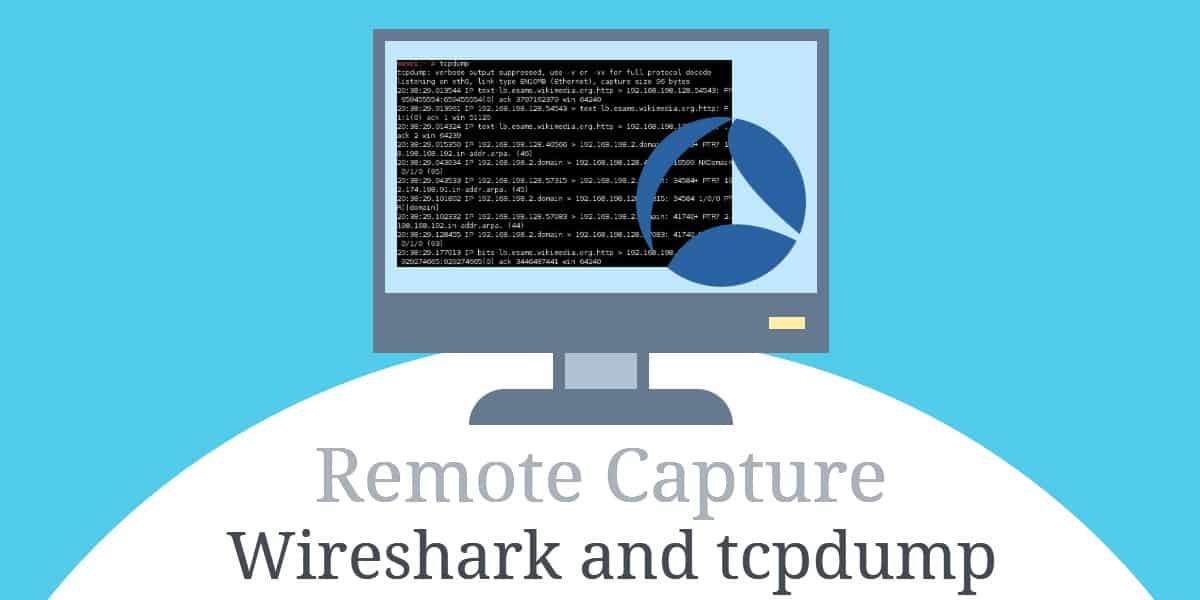Wireshark
Wireshark is a popular network sniffing tool that provides GUI to decode many protocols and filters. Wireshark is a network traffic monitoring tool that runs on a network interface. It is now the most commonly used network management application. Device operators, network engineers, network security experts, and black hat hackers use Wireshark.
Tcpdump
Tcpdump is also one of the most used network analysis tools, providing simplicity and efficiency in one interface. It is a packet analyzer that tracks and records TCP/IP traffic between a network and the machine on which it is run. Tcpdump is a free, open-source network utility licensed under the BSD license. Tcpdump uses a command-line interface to provide content packet definitions in various formats based on the command used.
Log analysis, traffic analysis, and packet capture analysis are the most important for network security. Packet captures and packet processing is used to analyze traffic. A network’s traffic is essentially a flow of packets. Now, being able to intercept and inspect those packets is critical to determine which types of traffic in our network should be protected. Wireshark & tcpdump are used for this analysis. We are going to see the difference between them.
Head-to-Head Comparison Between Tcpdump vs. Wireshark (Infographics)

Key Differences between Tcpdump vs. Wireshark
Here are the following vital differences mentioned below.
Tcpdump is a CLI-based packet-capturing tool. It accepts many filters and allows you to view data about packets entering and going out of an interface remotely via an SSH session. The filter syntax may be intimidating initially, but it’s highly effective once the user holds it. In contrast, Wireshark is a graphical user interface tool that helps you catch (or view captured) packets going in and out of an interface, similar to tcpdump. When analyzing a packet, you can add filters to detect and collapse fields you don’t care for. Furthermore, Wireshark helps you to separate streams, such as an entire TCP session chat.
Tcpdump is most commonly used for system-based traditional interfaces. On the other hand, Wireshark maps Additional network interfaces.
Tcpdump only provides a simple analysis of such types of traffic, such as DNS queries.
On the other hand, Wireshark is much more flexible in terms of protocol and packet analysis; it can decode data payloads if the encryption keys are identified, and it can recognize data payloads from file transfers such as SMTP, HTTP, and so on.
PCAP is a valuable tool for analyzing files and monitoring network activity. Wireshark and other packet collection software help you to gather network traffic and convert it to a human-readable format. And this pcap file can be created on any device by capturing files on that system, sharing them with another, and analyzing the captured packets from this pcap file. Both tcpdump and Wireshark can read packet captures from a file directory, which means they can read pcap files.
However, the methods for constructing pcap files in both tools are different.
Wireshark and tcpdump use dotted code to translate the source and destination IP addresses. It displays the communication’s port number.
The source and destination IP addresses are translated to dotted code format by Wireshark and tcpdump. It indicates the communication’s port number.
Tcpdump resolve host addresses to hostnames by default, even if it performs this dotted format conversion. Tcpdump can swap port numbers with utilities that are usually connected to that port. (–n) flag.
Wireshark’s device protocols allow for effective packet filtering based on protocols and their particular fields. It also supports TCP streams or sessions, which helps us quickly reassemble and view both sides of a TCP session, ensuring that you can access the full 2-way exchange of data.
Comparison table between Kivy and Tkinter
| Sr No | Wireshark | Tcpdump |
| 1 | Wireshark is a graphical user interface tool that helps you to catch data packets. | Tcpdump is a CLI-based packet-capturing tool. |
| 2 | It does packet analysis, can decode data payloads if the encryption keys are identified, and can recognize data payloads from file transfers such as SMTP, HTTP, etc. | Tcpdump only provides a simple analysis of such types of traffic, such as DNS queries. |
| 3 | It has advanced network interfaces | It has system-based conventional interfaces |
| 4 | Wireshark is suitable for complex filters | Tcpdump is used for simple filters. |
| 5 | It provides decoding of protocol-based packet capturing. | It is less efficient in decoding compared to Wireshark. |
Conclusion
Although Wireshark appears to be much preferable to tcpdump in efficiency, tcpdump is preferred for quick and short-hand-based packet capture. The performance accuracy of tcpdump is best for fast scans and packet capture. On the other hand, Wireshark is always the first option for complex scans. So in this article, we have seen differences between Wireshark and Tcpdump. You can choose any of them based on your requirements. We hope you will find this article helpful.












